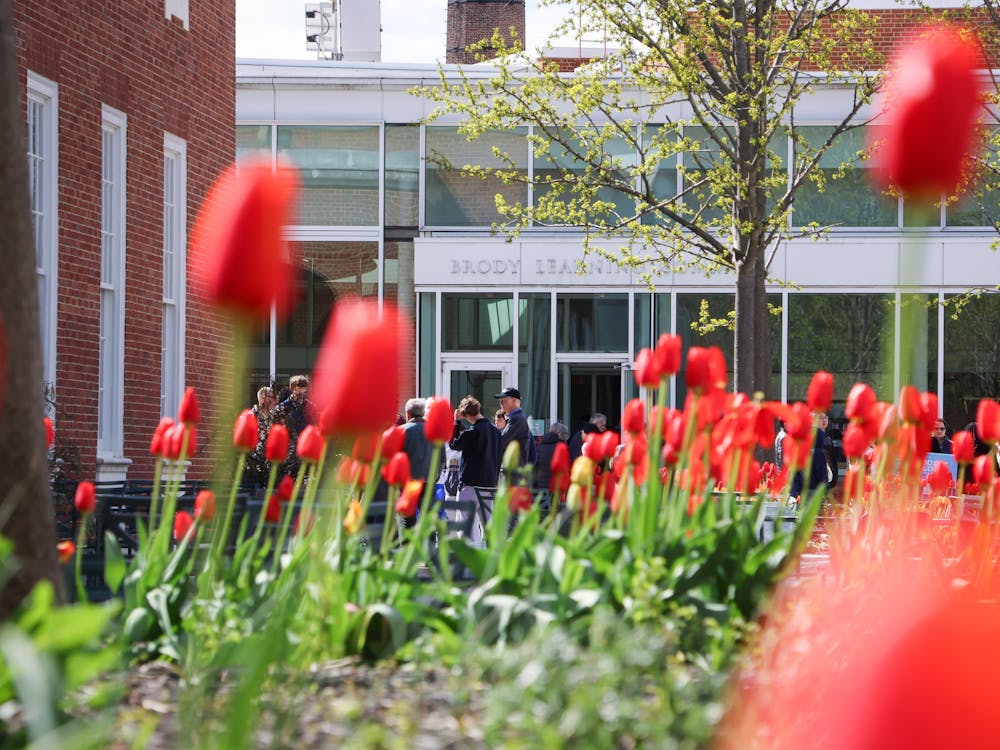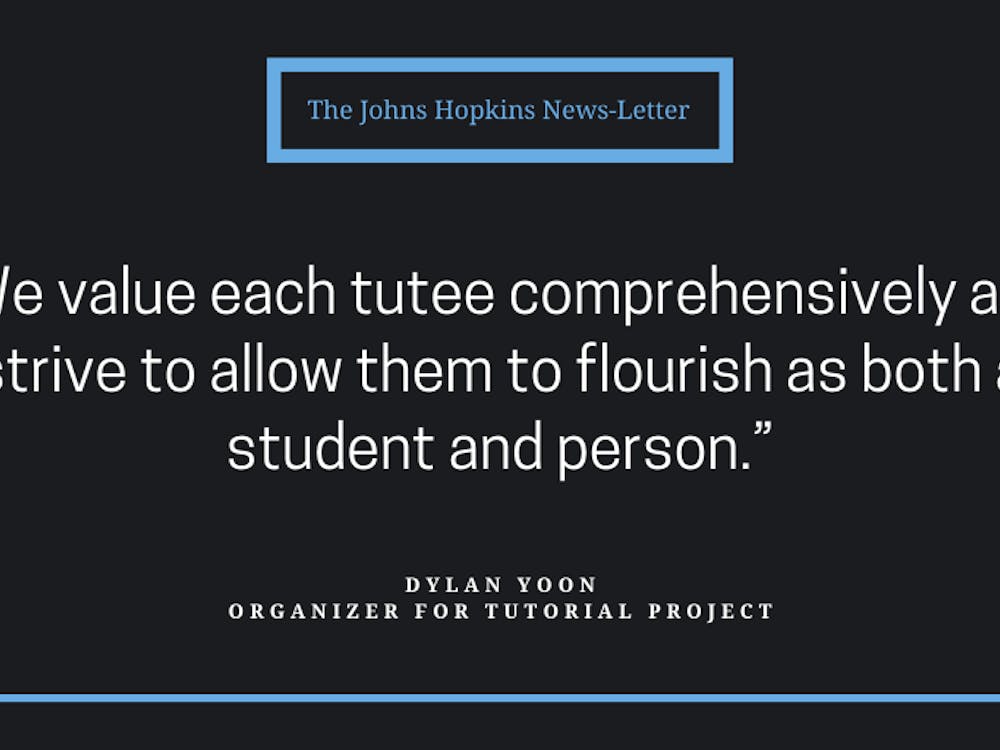By CATHERINE PALMER
News & Features Editor
Many Hopkins students are voicing their support for Ahmed Mohamed, 14, an American Muslim boy who was arrested last week after bringing a homemade clock, which was mistaken for a bomb, to MacArthur High School in Irving, Texas.
His arrest prompted a national movement of solidarity, largely through social media, including messages of support from U.S. President Barack Obama, who invited the teen to the White House, and Facebook founder Mark Zuckerberg, who invited Mohamed to Facebook headquarters.
Mohamed, a freshman, brought his clock, which is housed inside a large metal pencil case, to school Sept. 14 to show it to his teachers.
According to Mohamed, the first teacher he showed it to was impressed by it, but encouraged him not to show it to anyone else.
“He told me, ‘It looks like a bomb,’” Mohamed said in a Sept. 16 interview with MSNBC’s Chris Hayes. “It surprised me.”
Mohamed later showed it to a second teacher.
“I told her, ‘Do you want to see my clock?’ And she said, ‘Sure,’” Mohamed said.
He then showed it to the teacher.
“Her eyes went up and her eyes widened, and she looked at it and she said, ‘Is that a bomb?’ I told her, ‘No, it’s a clock I built over the weekend,” he said.
He said his teacher then confiscated the clock and said she would return it to him at the end of the day. The clock later beeped during class and he was then taken out of class and questioned by five School Resource Officers, police who are assigned to work with school administrations, and the school principal.
According to Mohamed, one of the officers seemed to comment on his race during the interrogation.
“He got back in the recline chair and he relaxed and he said, ‘That’s who I thought it was,’” Mohamed said. “I took it mean that he was pointing at me for what I am, my race.”
Mohamed said that he had not had any contact with the officer prior to the interrogation.
Sophomore mechanical engineering student Stephane Teste was also concerned by the officer’s statement.
“Does that mean that he’s fitting a profile? In which case, what kind of a 14-year-old is fitting a profile?” Teste said.
Mohamed asked to call his parents while being questioned but he was not allowed to do so.
“They told me, ‘No, you can’t call your parents. You’re in the middle of an interrogation at the moment,’” Mohamed said.
The Irving Police Department has yet to offer an explanation as to why Mohamed’s parents were not contacted.
Mohamed said he was questioned for about an hour and 25 minutes. Irving Police Chief Larry Boyd denied in a CNN interview on Friday that the questioning lasted that long.
“School Resource Officers questioned the student about his intentions and the reason why he brought the device to the school. The student would only say that it was a clock and was not forthcoming at that time about any other details,” Boyd said in a Sept. 16 press conference. Police decided to charge Mohamed with possession of a hoax bomb.
“Under Texas law, a person is guilty of possessing a hoax bomb if he possesses a device that is intended to cause anyone to be alarmed or a reaction of any type by law enforcement officers,” Boyd said. “Following the standard procedures that we have, the student was handcuffed for his safety and for the safety of the officers and was transported to juvenile processing at the police station.”
Mohamed described his experience of being put in handcuffs.
“I felt like I was a criminal. I felt like I was a terrorist. I felt like all the names I was called,” Mohamed said. “In middle school I was called a terrorist, called a bomb-maker just because of my race and religion.”
Mohamed was released to his parents at the police station. Police continued the investigation and later the charges against him were dropped.
“There’s no evidence to support the perception he intended to create alarm,” Boyd said on Wednesday.
Senior biomedical engineering student Mike Clark said he identified with Mohamed.
“When I was that age I was always tinkering with stuff. And I remember even in preschool I made this battery thing. It was like a really simple circuit but it had a bunch of wires kind of like what the clock had,” Clark said. “I brought that into school, and I can’t imagine if somebody took that the wrong way.”
Many Hopkins students think the police overreacted to the situation.
“I think that it was a reaction that was unwarranted for the situation even if they did think it was a safety risk. At the same time, they should probably get all the facts first before putting the kid in handcuffs,” senior Serena Durrani, a member of the Muslim Student Association, said.
Todd Hufnagel, a materials science and engineering professor, said he would be “outraged” if a Hopkins student was treated as Mohamed was and thought that the school administration and police did not respond appropriately to the situation.
“Here’s a kid who’s taken initiative and doing things outside of what’s just required of him in school and being excited about that and wanting to share it. That’s the kind thing that we want our students to do. And to have sort of a heavy-handed response to that is a real shame,” Hufnagel said.
Durrani believes that Mohamed’s race and religion could have been a factor in how the police and school administration handled the situation.
“There’s no way obviously that anyone would know for sure and, at the same time, there are other kids who do face very harsh consequences from schools for doing things that aren’t actually necessarily against school code,” Durrani said. “But I think because of the negative stereotype that there is in America about people who are Muslims that it could have definitely played a role, especially because they thought it looked like a bomb.”
Senior biomedical engineering student Dan Adler said he could also relate to Mohamed.
“As someone who’s in STEM, I love to see young kids in all fields getting involved in something like this. To me it’s more depressing that freedom of creativity can get a bad angle... because of whatever the teacher thought at the time,” Adler said.
He hopes that the negative situation will lead to a positive outcome for other young inventors.
“Because this was made into a popular story it became kind of a more inspirational thing,” Adler said. “Hopefully the notoriety it’s gotten, the media blow up will also help more kids now get more inspired to one, end the racial discriminations that might be out there and two, get involved in STEM from a young age.”
Mohamed’s clock remains in police custody. However, his family hired a legal team Wednesday to have the clock returned.






















Please note All comments are eligible for publication in The News-Letter.